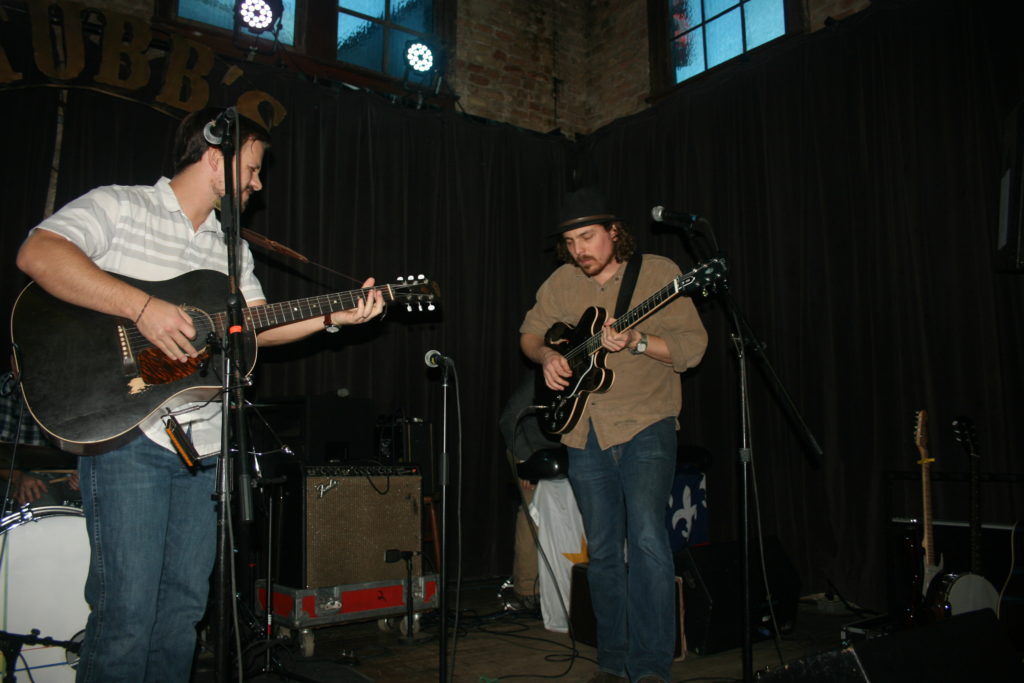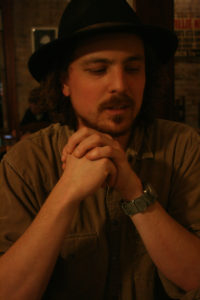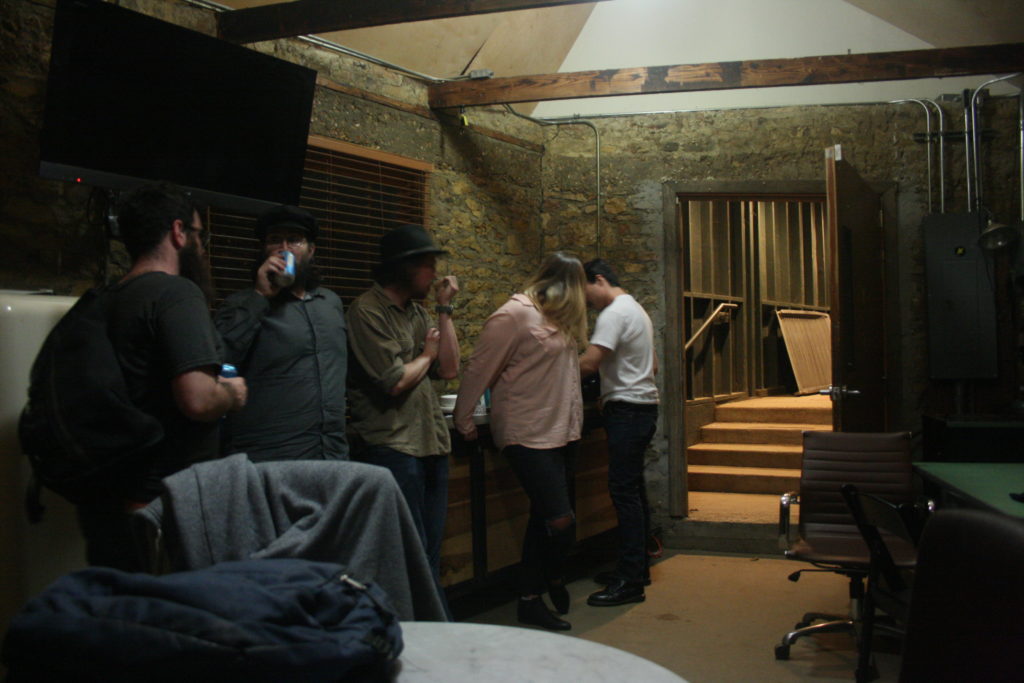Strategy, entrepreneurship and Rock & Roll
“It’s really a war of attraction in a way; you just go out and you have a smart management team, you have a smart business model, you have good music, you have lots of devoted fans and you are smart about where you play and what gigs you take.”
By Mariel Williams
Editor
There are a lot of reasons that people back away from a career in the arts, but for many, it just comes down to a question of dollars and cents. Music is not always the best way to make a living.
Greg Essington is one of the lucky few—e has turned his passion into his day job. “Between the band and teaching, it’s music full time,” he said. “That’s what I do.”
Essington is one of the founding members of Blue Water Highway Band, an Americana/folk-rock six-piece ensemble based in Kyle, Texas. Essington and his bandmates supplement their income by giving music lessons at Curious Chords.
“From the time I was like three or four I was singing and playing instruments,” Essington said. “I would always do musicals in kindergarten, Pre-K, elementary school—I sang in the choir, I started piano when I was six.”
Essington grew up in Lake Jackson, Texas, where he and lead singer Zack Kibodeaux went to high school together. He studied music technology at New York University. After graduation, he tried his hand at various jobs before he began to seriously consider music as a full-time job.

“It took me a while to see that but it’s great to be able to say you’ve been doing something for that long,” he said. “There was a point when I was like, ‘This is what I’m going to be trying to focus on as a career; make a living and use it to serve others.”
After college, Essington worked as a summer camp counselor in Navasota, Texas, and began slowly edging toward a music career. “Zack would send me songs and we would play together on weekends,” Essington said. “We weren’t in the same town so we sang just whenever we could get together. I’ve kind of taken a roundabout way to get to where I am now.”
Blue Water Highway Band has been performing for three years. Recently, the band has been booking enough gigs that Essington may have to cut back on his teaching schedule—a bittersweet advancement, since he’ll miss his students. “Average month we probably do anywhere from 12 to 15 [shows] right now,” he said. “We average about two or three a week.”
Of course, some gigs reach a wider audience than others. Recently, the band performed on KXAN, a local NBC affiliate. (You can see video of their performance here.) Essington keeps a number of instruments close to hand when he’s up on stage; in addition to lead guitar he plays piano, accordion and mandolin. Lately, he’s been learning to play the violin.
“I don’t think I can see myself doing too much else, although I ran away from music for a little while in my life,” Essington said. “Not completely away from it but it wasn’t a career for about three or four years.” The Hollywood image of making it as a musician focuses on getting “discovered,” but the members of Blue Water Highway Band aren’t waiting for lightning to strike. They are taking a more pragmatic approach to devoting their lives to their art.
“It just takes growing in a business sense—growing your fans and your markets,” Essington said. “Mostly musicians make money from appearances. . . . Nobody is making any money off buying music.” The band’s goal is to be able to support themselves performing. “The motto is play a lot of shows, get a lot of people to come out for shows and get to the point where you can support yourself from playing on shows,” Essington said. “You build up your fan [base] and your organization enough where you get paid a lot more to play gigs.”

That being said, Essington doesn’t want to give up on his outside work entirely. “I still want to be teaching in some aspect,” he said. “Actually, in a way teaching helps our band because we have an income from teaching and so we don’t have to take any old gig even if it’s not worth it and doesn’t pay well. I think teaching is always going to be part of what we do.”
Blue Water Highway Band is managed by Mike Krug of CTK Entertainment. “We also have a team of publicists right now,” Essington said. But the band members still shoulder a lot of the responsibility for looking after the business side of the music business. “Zack and I handle some management stuff like keep the books,” Essington said. “Our bass player is actually our tour manager so to speak which means he handles logistics for gigs and organizes travel plans.”
Everyone does their part. “Right now it’s kind of spreading management across all of those people,” Essington said. “In terms of what it takes to run a musician or a business, we kind of spread a lot of that across the band.” Essington tries to stay focused on the work and the care that goes into making a group a big success.
“Things don’t just happen—for instance Adele, or if you take Taylor Swift . . . the reason that they’re there is . . . because they had the right people supporting them,” he said. “There is an entire organization supporting their art and their music.”
The members of Blue Water Highway Band are not just following their muse and hoping that someone important will notice their talent; they have families to support, and they plot their career strategically. “Nothing just happens,” Essington said. “I guess YouTube makes people famous sometimes but it’s probably because they’ve been doing something right for a long time before.”
Strategy, Essington said, is key. It is, in fact, the first thing he would consider if someone asked him for advice on how to commit to a music career. “I would say ‘what’s your strategy’ is a good question you should ask yourself [in] advance,” he said. “It’s like anything else; if you’re doing something on the side, [if] you have a hobby of cooking and if you’re getting lots of good feedback that people love the food you cook and then you’re like, . . . ‘Wow! People love my crab cakes. . . . Maybe I should think about becoming a chef or open up a restaurant.’ ”
Strategy is important, but so is talent. “I think you deserve to evaluate where you are with your craft,” Essington said. If you’ve decided you have the talent and settled on a strategy, the next step is to build a team. “Especially in music, if you’re going to make a living from it you really do have to have the right team, the right business team, the right band, the right backing band, the right support base,” Essington said. “Nothing just happens on its own; it’s a strategy and it’s a long process. Surrounding yourself with the right helpful people is one of the most important things you can do.”

